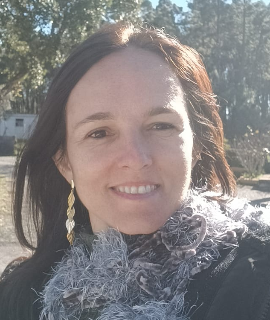Title : Breaking the silence: Breast cancer extracellular vesicles as key players in breast cancer immune suppression
Abstract:
Breast cancer is the most prevalent malignancy in women worldwide and remains a leading cause of cancer-related mortality. Immune system controls tumor progression but is often suppressed in breast cancer. Dendritic cells (DCs), essential for linking innate and adaptive immunity, frequently exhibit impaired functionality. Emerging evidence highlights the significant role of extracelular vesicles (EVs) in shaping the immune microenvironment. These vesicles have the ability to carry many kinds of bioactive molecules from proteins, lipids to microRNAs capable of modulating immune cell functions. Here we explore the participation of EVs as well as a putative mechanism during dendritic cell modulation emphasizing their impact on immune regulation and cancer progression. EVs were isolated from the plasma of breast cancer patients and healthy donors by ultracentrifugation. Characterization of exosomes were performed by western blotting, transmission electron microscopy and nanoparticle tracking analysis. Monocyte-derived DCs (Mo DCs) from healthy donors were differentiated in DC the presence of breast cancer exosomes (BC EVs) or healthy donor exosomes (HD-EVs). Phenotypic and functional analyses were performed using flow cytometry, cytokine quantification, and mixed lymphocyte reactions (MLR). The expression of miR-181b and its target, GSK3β-interacting protein (GSKIP), was assessed using qPCR and Western blot. Inhibition of miR-181b was performed to evaluate its role in DC modulation. Mo-DCs exposed to BC-EVs showed maturation arrest with decreased expression of HLA-DR, CD80, CD86, CD11c and increased PD-L1. These cells impaired CD4+ and CD8+ T cell proliferation and expression of pro-inflammatory cytokines. BC-EV/Mo-DCs also induced the differentiation of regulatory T lymphocytes (Tregs), higher expression of IL-10 and PD-1 by T cells. We demonstrated that BC-EVs enriched for miR-181b-5p inhibited expression of GSK3β interaction protein (GSKIP) arresting GSK3b inactivation and preventing mTOR activation, switches necessary for DC maturation. Inhibition of miR-181b with specific siRNA restored BC-EV/Mo-DCs pro- inflammatory phenotype highlighting its role in the tolerogenic phenotype. Analysis of BC patient survival revealed that high miR-181b expression correlated with poor prognosis, whereas higher GSKIP levels were associated with better outcomes. BC-EVs enriched with miR-181b induce tolerogenic DCs by modulating the GSK3β/mTOR axis, contributing to immune evasion and cancer progression. Targeting miR-181b represents a promising strategy to restore DC functionality and improve immunotherapeutic outcomes in breast cancer. Our findings provide important insights into the physiopathology of cancer and immune evasion, which could have implications for cancer prognosis and the development of effective immunotherapy approaches for breast cancer.



